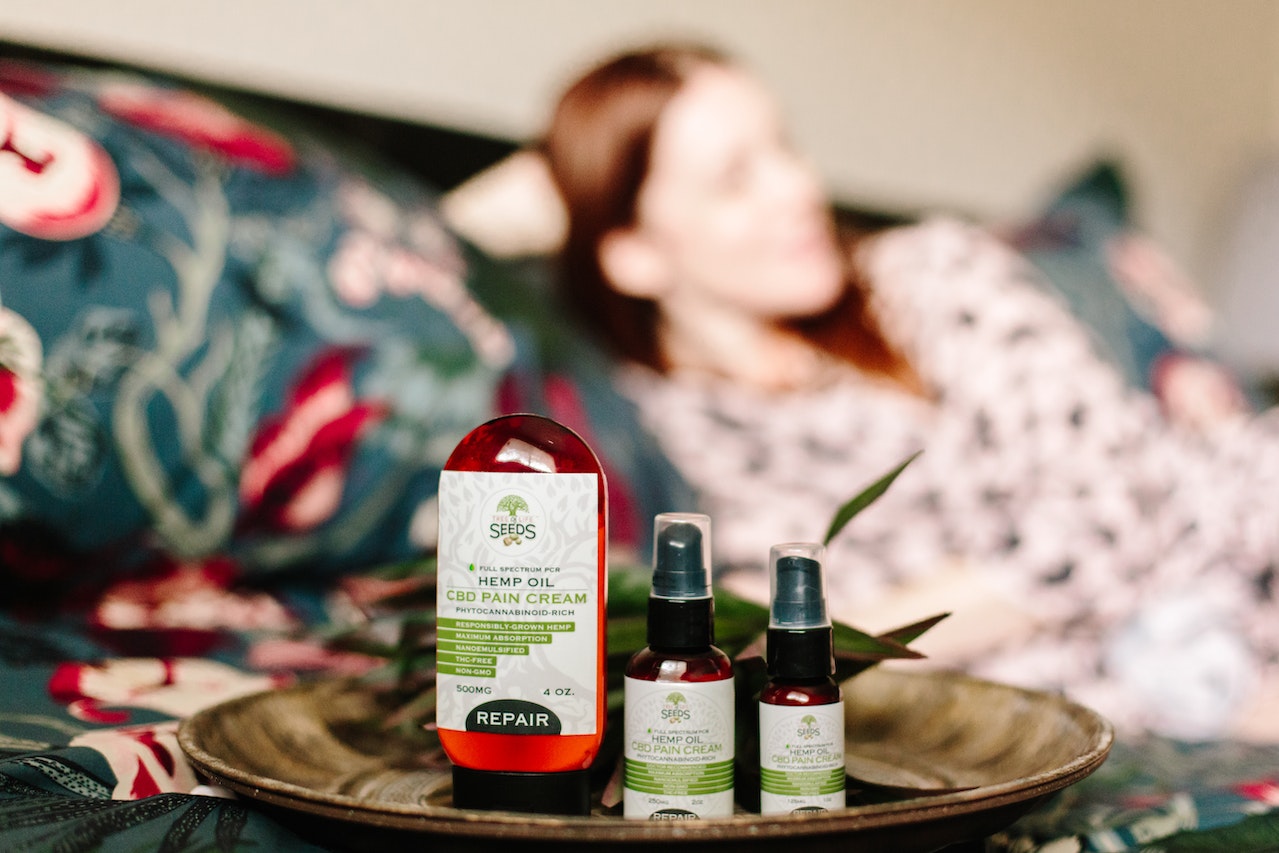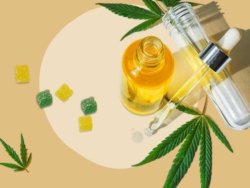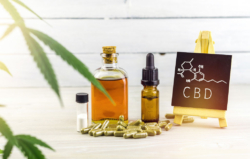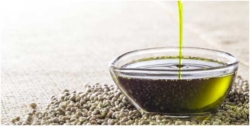Perhaps you started a new physical activity, started hitting the gym, or maybe age is creeping up on you; there can be a number of reasons why your muscles and joints feel stiff and sore. Chronic pain can disrupt your daily life, from affecting your social life to your sleep schedule, leading to depression and anxiety.
In your journey to search for the best pain relief strategy, you must have heard about CBD or Cannabidiol, which comes in multiple forms, such as hemp cream or CBD oil. 60% of U.S. adults who have tried a CBD product believe it has medicinal benefits. First, let’s look into what CBD is and then discuss whether you should go for CBD oil or cream.
Understanding CBD
Cannabidiol (CBD) is a major cannabinoid in marijuana. It derives from both hemp and non-hemp plants. Hemp is part of the cannabis sativa plant with less than 0.3% of THC or tetrahydrocannabinol, a mind-altering substance, so it doesn’t produce a “high” like other marijuana ingredients. The WHO experts committee also confirms that cannabidiol in its pure state does not lead to substance abuse or harm.
CBD works by interacting with the endocannabinoid system (ECS). The ECS regulates and controls bodily functions like sleep, memory, immune response, pain, and more. Researchers believe CBD inhibits an enzyme that breaks down endocannabinoids, allowing them to carry out regulatory functions for longer. However, there is a need for further research to reach a proper conclusion about its workings.
The U.S congress passed the Agriculture Improvement Act in 2018, which legalized CBD coming from hemp; however, in certain states like New Hampshire and South Dakota, hemp production is banned.
The Health Benefits of CBD
Let us now look into the health benefits of CBD, backed by research. It is important to note that further research is still required.
1. Chronic Pain Relief and Chemotherapy
Clinical studies conducted in the U.S. found CBD an effective and safe solution to reducing chronic pain such as migraines. It is also considered a better alternative to opiates because of its less addicting and non-intoxicating nature. Patients who have used CBD to treat arthritis symptoms have also reported improvement. Cannabidiol can also be used to relieve chemotherapy-induced symptoms of nausea and vomiting. Findings also suggest that CBD has promise as an anti-cancer drug.
2. Treating Epilepsy
Epilepsy is a common nervous system disorder associated with recurrent seizures. The FDA has approved Epidiolex (a pharmaceutical-grade cannabidiol oil) for treating Dravet syndrome and Lennox-Gastaut syndrome, two rare and severe forms of epilepsy. John Hopkins medical researchers also found that CBD reduces negative symptoms like anxiety associated with anti-seizure medications.
3. Treating Mental Health Disorders
CBD is efficient in reducing anxiety symptoms associated with multiple anxiety disorders, such as generalized anxiety disorder (GAD), post-traumatic stress disorder (PTSD), social anxiety disorder (SAD), obsessive-compulsive disorder (OCD), and more. Due to its positive interaction with the serotonin receptor in the brain, CBD has the potential to help treat depression. CBD is also associated with an improvement in sleep quality.
4. Protection Against Neurodegenerative Disorders
We can call CBD a neuroprotective compound because of its anti-inflammatory and antioxidant properties, making it beneficial against Alzheimer’s disease, multiple sclerosis, and Parkinson’s disease.
Difference Between CBD Oil vs. CBD Cream
Now that we know CBD’s healing properties let’s look at the difference between CBD oil and cream.
1. What Are CBD Oils and CBD Creams?
CBD creams refer to any topical product infused with CBD. They can be in the form of creams, balms, salves, moisturizers, or lotions. Hemp-based CBD topicals are excellent moisturizers and can protect your skin from outside exposure. In contrast, CBD oil is an extract containing high levels of CBD and diluted with a carrier oil, and it is often ingested. Patients use CBD to treat arthritis, eczema, inflammation, and psoriasis. You may also use it before or after a workout to relieve exercise-induced soreness.
2. How to Use Them
You can consume CBD oils orally; they come in a bottle with a dropper or a spraying mechanism. You can also take it sublingually by adding a few drops under your tongue and holding it there for one to two minutes before swallowing, allowing the body to absorb it into the bloodstream. You can also Inhale it by vaping, smoking, or ingesting it as capsules.
As for CBD cream, you apply it to your skin; it penetrates the skin barrier and affects the ECS rather than passing through the bloodstream. Companies may formulate CBD creams for specific body parts like joints or arms. CBD cream works faster because CBD oil needs to be digested and metabolized.
3. What to Choose and the Importance of Bioavailability
As the active ingredient is CBD, both oil and cream will work well. CBD oils are ideal for non-site-specific issues and problems like insomnia, anxiety, or depression, while CBD creams are ideal for joint, back pains, or skin issues.
CBD oils have higher bioavailability than CBD creams. Bioavailability means the rate and quantity at which the body absorbs CBD into the bloodstream. The lower the bioavailability, the more product you must apply for it to take effect; this helps in choosing the right product for you. Inhaled or ingested CBD are more likely to interact with medications than CBD creams because the cream doesn’t enter your bloodstream.
Potential Side Effects and Harms of CBD
Common side effects include:
- Fatigue
- Dry mouth
- Nausea
- Drowsiness
- Irritability
- Diarrhea
- Lightheadedness
- Reduced appetite
According to Harvard Health, CDB can also interact with other medications and double their side effects. For example, prescription medications like Xanax, antidepressants, or alcohol, can lead to increased fatigue and possible falls and accidents when driving. Taking it with Adderall or other stimulants can reduce appetite. It may also make specific medication stop working, such as warfarin, a common blood thinner, or levothyroxine, a thyroid medication.
The FDA recommends keeping CBD products away from pregnant women and children. They also warn that it can lead to liver damage. CBD creams are unregulated; many businesses selling Hemp or CBD products may use THC as an ingredient; thoroughly research a reputable and trustworthy company before choosing a CBD product. Ensure they use highly organic ingredients and have strict testing standards to ensure product potency and purity; Be aware of how they extract their product.
Endnote
Whether you opt for CBD cream or CBD oil, we recommend you talk to your health practitioner first. They can guide you on how to use it, how much to take, if it’s safe for you, and if it will interact with any medication you are currently on. The effects may vary from individual to individual, and while many report its positive benefits, research is still underway. There are many debates surrounding its benefits and risks, so practice caution.
Image Source: https://www.pexels.com/photo/two-white-and-green-labeled-glass-bottles-3259598/







